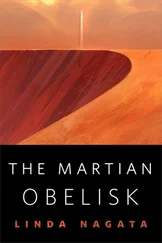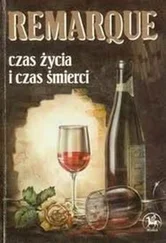I pick up the elephant’s foot and empty its contents into the street. The rain quickly washes away Erna’s protestations of love. Money has won, I think, as always, though it is worth nothing. I go to the other window and look into the garden. The great festival of the rain is in full swing, a green nuptial orgy, shameless and innocent. In the flare of the lightning I see the plaque for the suicide. It has been put to one side; the inscription has been carved and gleams with gold. I shut the window and turn on the light. Below, Georg and Lisa are murmuring. My room suddenly seems horribly empty. I open the window again and listen to the anonymous rushing and decide to request from Bauer, the bookseller, as honorarium for my last week’s tutoring, a book on yoga, renunciation and self-sufficiency. Adepts are said to achieve fabulous results through simple breathing exercises.
Before I go to sleep I pass a mirror. I stop and look into it. What is there really? I think. Whence comes the perspective which is not a perspective, the deceptive depth, the space which is a plane? And who is that who peers out questioningly and is not there?
I look at my lip swollen and crusted with blood. I touch it and someone opposite me touches his ghostly lip which is not there. I grin and the not-I grins back. I shake my head and the not-I shakes his not-head. Which of us is which? And in front? Or something else, something behind both? I feel a shudder and turn out the light.
Riesenfeld had kept his word. The courtyard is full of monuments and pedestals. The ones polished on all sides are in crates and wrapped in sacking. They are the prima donnas among tombstones and must be handled with extreme care to avoid damaging their edges.
The whole crew are in the courtyard to help and to watch. Even old Frau Kroll is wandering around, examining the blackness and quality of the granite and now and again casting a melancholy glance at the obelisk beside the door—the single remaining item of her late husband’s purchases.
Kurt Bach is directing the moving of a huge sandstone block into his workroom. A dying lion is to be created out of it, but this time not one bowed with toothache but roaring a last defiance, a broken spear in his flank. It is to be a war memorial for the village of Wüstringen where there is a particularly belligerent veteran’s organization under the command of Major Wolkenstein, retired. The sorrowing lion was too much like a washrag for Wolkenstein. What he would really like is one with four heads spewing fire from all mouths.
A shipment from the Württemberg Metal works, which arrived at the same time, is also being unpacked. Four eagles taking flight have been arranged in a row on the ground, two of bronze and two of cast iron. They are to become the crowning decorations for other war memorials to inspire the youth of the land to a new war—for, as Major Wolkenstein has so persuasively declared: “We must win sometime, and then woe to the vanquished!” For the moment, to be sure, the eagles look like nothing so much as giant roosters trying to lay eggs—but this will be quite different once they are enthroned on the monuments. Even generals without their uniforms are likely to look like grocers’ apprentices, and Wolkenstein himself in civilian clothes would be taken for a fat athletic director. Costume and perspective are important in our beloved fatherland.
As advertising director I supervise the arrangement of the monuments. They are not to be placed haphazardly in rows but artistically located about the garden in intimate groups. Heinrich Kroll is against this. He would like to see the stones placed like soldiers in formation; anything else seems to him effeminate. Fortunately he is outvoted. Even his mother is against him. Indeed, she is always against him. Even now she cannot understand why Heinrich belongs to her and not to the wife of Major Wolkenstein, retired.
The day is blue and beautiful. Over the city the sky hangs like a giant silken tent. The cool of morning still lingers in the crowns of the trees. Birds are twittering as though nothing existed except early summer, their nests, and their young. It doesn’t matter to them that the dollar, like an ugly, spongy toadstool, has puffed itself up to fifty thousand. Nor that, the morning paper contains the notices of three suicides—all people of small independent means, all committed in the favorite fashion of the poor by an open gas jet. Frau Kubalke was found in her living room with her head in the gas heater; the pensioned government clerk Hopf, freshly shaved, in his last, faultlessly brushed, much-mended suit, grasping in his hand four worthless red-seal thousand-mark notes like tickets to heaven; and the widow Glass on the floor of her kitchen, her bankbook, showing deposits of fifty thousand marks, torn in two beside her. Hopf’s red-seal thousand-mark notes were his last banner of hope; for a long time there has been a belief that they would sometime or other be redeemed at full value. Whence this rumor came no one knows. They were never officially payable in gold, and even if they have been, the State, that immune betrayer, which embezzles billions and jails anyone who defrauds it of as much as five marks, would find some pretext for not paying. Only day before yesterday there was a notice in the paper that these notes would not receive preferential treatment. That’s the reason Hopf’s death notice is in the paper today.
From the workroom of Wilke, the coffinmaker, come the sounds of hammering, as though a giant, cheerful woodpecker lived there. Wilke’s business is booming; everyone needs a coffin sooner or later, even a suicide—the time of mass graves and burial in canvas bags has passed with the war. Now once more one decays fittingly in slowly moldering wood, in shroud or backless frock coat or in a burial dress of white crepe de Chine. Niebuhr, the banker, even in all the glory of his orders and fraternal insignia; his wife insisted on it. In addition, he had been provided with a facsimile of the Harmony Singing Club’s flag. He was their second tenor, and every Saturday roared his way through “ Schweigen im Walde ” and “ Stolz weht die Flagge Schwarzweissrot ,” drank almost enough beer to burst, and then went home to beat his wife—an upright man, as the pastor said at his funeral.
Fortunately at ten o’clock Heinrich Kroll disappears with his bicycle and his striped pants to visit the villages. All this new granite makes his salesman’s soul restless; he has to be on his way to let the sorrowing survivors know about it.
Now we can become more expansive. First of all we give ourselves a recess and are served liverwurst sandwiches and coffee by Frau Kroll. Lisa appears in the gateway. She is wearing a blazing red silk dress. Old Frau Kroll scares her away with a glance. She can’t stand Lisa, although she is no prude herself. “That dirty tramp,” she exclaims with emphasis.
Georg promptly falls into the trap. “Dirty? What do you mean dirty?”
“Can’t you see she’s dirty? Unwashed under all that finery.”
I see Georg involuntarily grow thoughtful. Dirt is not something you like to think of in connection with your beloved—unless you’re a decadent. For an instant there is a kind of flash of triumph in his mother’s eyes; then she changes the subject. I look at her in admiration; she is a general of mobile units—she strikes swiftly, and when her opponent gets ready to defend himself she is already somewhere else. Lisa may be a tramp; she is certainly not obviously dirty.
The three daughters of Sergeant Major Knopf come flitting out of the house. They are seamstresses like their mother, small, roly-poly, and nimble. Their machines whir all day long. Now they dart off, carrying bundles of exorbitantly costly silk shirts for profiteers. Knopf, the old soldier, does not hand over one pfennig of his pension for household expenses; that’s something for the four women to see to.
Читать дальше








